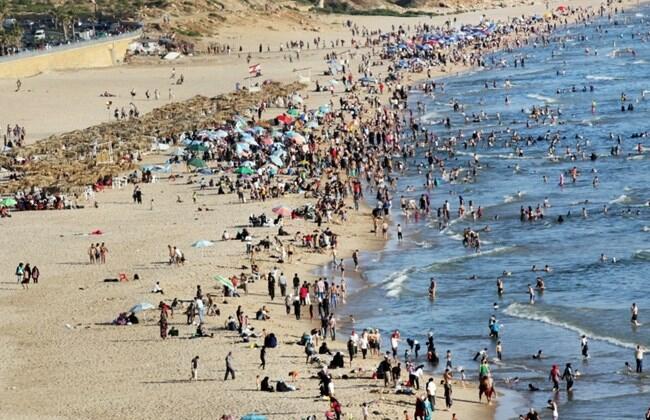“With all due respect to Mr. Walid Jumblatt, these claims are completely untrue,” Bilal Hamad told The Daily Star by phone. “I have already stated many times to the media that expropriating the lots is not an item on the municipal council’s agenda.” “We have not held, and we are not currently holding, any negotiations with the owners,” he said. Earlier Wednesday, Jumblatt had tweeted saying that the municipality had reached a deal to purchase private lots from their owners. “Finally, the endeavors of Beirut residents succeeded in preserving Ramlet al-Baida beach, but at what price?” Jumblatt said on his Twitter account, two days after Beirut Judge of Urgent Matters Zalfa al-Hasan reversed a decision to allow private real estate companies to block the entrances to Beirut’s only public beach. Jumblatt claimed that the municipality would buy three parcels of land on the beach for LL195 trillion ($130 million), despite selling it in the past for just LL45 billion ($30 million). “Where is he [Jumblatt] getting his information from?” Hamad said. “A couple of days ago he claimed that we were planning to build commercial centers inside the horse riding stadium, which was also completely unfounded.” “Let him check his sources.” Two real estate companies, Mediterranean Real Estate and Bahr Real Estate, both owned by businessman Wissam Ashour, are the current owners of the land on Ramlet al-Baida. Irad Investment Holding group also owns some shares in the companies. Hasan’s previous order granted the companies permission to cordon off the sections of beach they owned, blocking public access to roughly 28,000 square meters of Ramlet al-Baida. Activists, however, voiced fear that developers would transform these sections of Beirut’s only free public beach – a popular destination for low-income families – into luxury projects that cater to the wealthy, similar to what occurred last year when the state fenced off a section of Raouche. Hasan claimed the reversal of the decision was due to new information she received that revealed the real estate companies had intentions beyond protecting private ownership. The PSP leader had also lamented Parliament’s failure to reach an agreement over law governing seaside property; decrying hisNational Struggle Front bloc’s inability to pass a law that defines Lebanon’s beaches as public property. The “affluent” people, “who have seized the seafront property, are stronger than the state,” Jumblatt tweeted. He speculated as to whether there were “wealthy brokers” behind the alleged deal. “We continuously called on the municipality to preserve the heritage of Beirut,” but this fell on deaf ears, he added. In 1966, the state endorsed a decree that allow owners to build on their seaside properties if their plans were approved by the Lebanese government and served touristic or industrial purposes. Hamad, on the other hand, said the coastal areas were solely the responsibility of the Public Works Ministry, specifically the Transportation Directorate. He said his municipality was not to blame for whatever the outcome was with regard to Ramlet al-Baida, calling on the state to “take back the coastal properties” by finding “an adequate solution.” He refused to comment on what that solution could be. “Why are they throwing this on Beirut’s municipality when it’s not at all our responsibility?” The Daily Star











